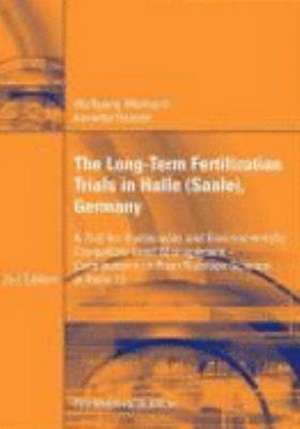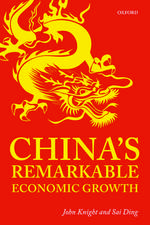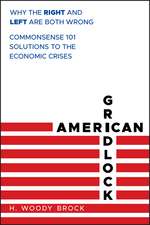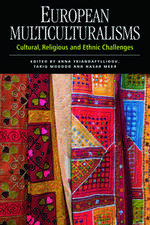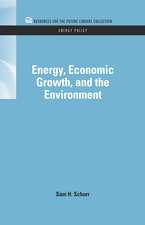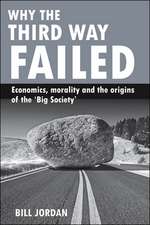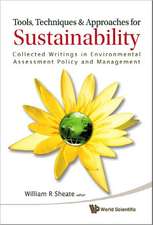The Long-Term Fertilization Trials in Halle (Saale): A Tool for Sustainable and Environmentally Compatible Land Management - Contributions of Plant Nutrition Science in Halle 13
Autor Wolfgang Merbach, Annette Deubelen Limba Engleză Paperback – 26 iul 2007
Preț: 380.84 lei
Nou
Puncte Express: 571
Preț estimativ în valută:
72.87€ • 76.29$ • 60.30£
72.87€ • 76.29$ • 60.30£
Carte tipărită la comandă
Livrare economică 07-21 aprilie
Preluare comenzi: 021 569.72.76
Specificații
ISBN-13: 9783835040007
ISBN-10: 3835040006
Pagini: 200
Ilustrații: VIII, 191 p.
Dimensiuni: 148 x 210 x 12 mm
Greutate: 0.25 kg
Ediția:2nd ed. 2007
Editura: Deutscher Universitätsverlag
Colecția Deutscher Universitätsverlag
Locul publicării:Wiesbaden, Germany
ISBN-10: 3835040006
Pagini: 200
Ilustrații: VIII, 191 p.
Dimensiuni: 148 x 210 x 12 mm
Greutate: 0.25 kg
Ediția:2nd ed. 2007
Editura: Deutscher Universitätsverlag
Colecția Deutscher Universitätsverlag
Locul publicării:Wiesbaden, Germany
Public țintă
ResearchCuprins
Site and Surroundings — the Julius-Kühn-Field in Halle.- The Long-Term Fertilization Trials at the Julius-Kühn-Field in Halle.- The Soil Development Trial started in 1948 (Halle, Adam-Kuckhoff-Straße 17b).- Final Remarks and Approaches to Continue the Long-Term Trials in Halle.
Notă biografică
Prof. Dr. Wolfgang Merbach lehrte bis 2006 Pflanzenernährung und war von 2000 – 2003 Dekan an der Landwirtschaftlichen Fakultät der Martin-Luther-Universität Halle-Wittenberg. Hauptarbeitsgebiete: Ökophysiologie der Rhizosphäre, symbiontische Stickstoffbindung, nachhaltige Landnutzung, N-Umsatz in Ökosystemen, klimarelevante Spurengase (Lachgas).
Dr. Annette Deubel promovierte auf dem Gebiet der Pflanzenernährung und beschäftigte sich schwerpunktmäßig mit Fragen der P – Dynamik im Boden, P – mobilisierenden Mikroorganismen und organischen Wurzelausscheidungen von Pflanzen.
Dr. Annette Deubel promovierte auf dem Gebiet der Pflanzenernährung und beschäftigte sich schwerpunktmäßig mit Fragen der P – Dynamik im Boden, P – mobilisierenden Mikroorganismen und organischen Wurzelausscheidungen von Pflanzen.
Textul de pe ultima copertă
Due to their buffer capacity, soils and ecological systems usually react gradually to different land use or climatic changes. Hence, effects are often quantifiable only after many decades. Long-term field experiments make it possible to recognize such long-term effects, which are caused e.g. by different fertilization treatments, for the respective location. This knowledge is essential for developing sustainable and ecologically desirable management concepts.
With the “eternal rye” experiment, laid out by Julius Kühn in 1878, the Institute of Agricultural and Nutritional Sciences of the Martin Luther University Halle-Wittenberg has the second oldest long-term fertilization trial of the world after Rothamstedt (UK). In addition, four more long-term fertilization experiments as well as one soil development trial exist in Halle, all founded by Karl Schmalfuß in 1948/49. Wolfgang Merbach and Annette Deubel summarize the most important results and draw conclusions for the continuation of these internationally important experiments.
With the “eternal rye” experiment, laid out by Julius Kühn in 1878, the Institute of Agricultural and Nutritional Sciences of the Martin Luther University Halle-Wittenberg has the second oldest long-term fertilization trial of the world after Rothamstedt (UK). In addition, four more long-term fertilization experiments as well as one soil development trial exist in Halle, all founded by Karl Schmalfuß in 1948/49. Wolfgang Merbach and Annette Deubel summarize the most important results and draw conclusions for the continuation of these internationally important experiments.
